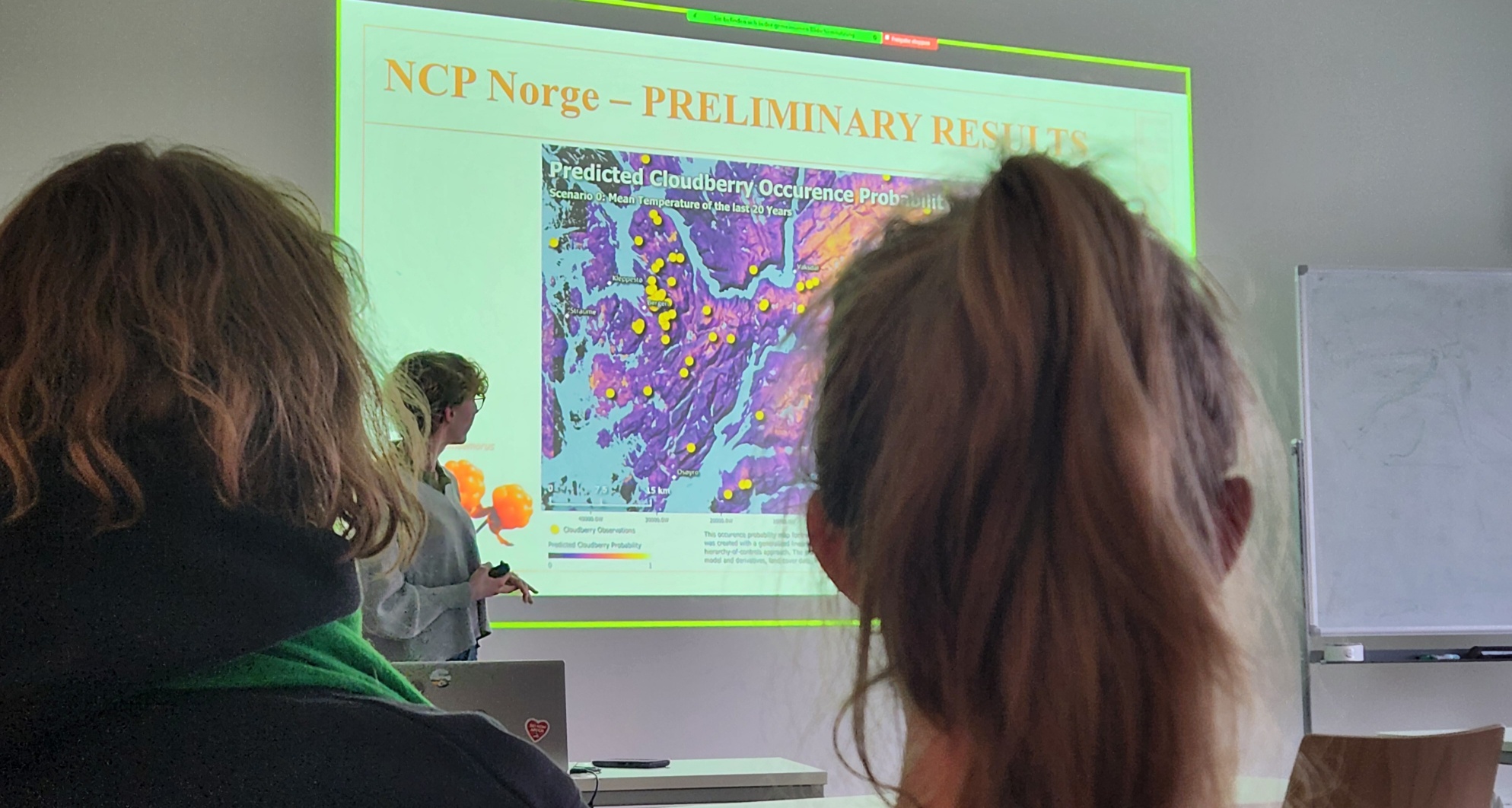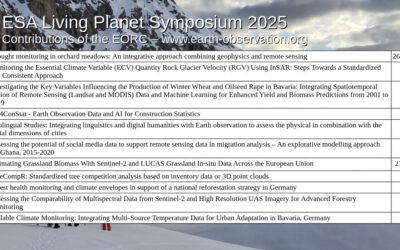On January 28, 2025, Sonja Maas delivered an insightful presentation on her internship project titled “Mapping Ecosystem Services in Norway.” Hosted by the University of Bergen, this internship focused on the critical role that nature plays in supporting human well-being through various ecosystem services.
Understanding Ecosystem Services and Nature’s Contributions to People (NCPs)
The concept of ecosystem services refers to the essential benefits that nature provides to humanity, such as food and materials, climate regulation, and cultural benefits. These services are crucial for both the environment and society. In her presentation, Sonja Maas discussed how the primary goal of her internship was to identify, quantify, and model these services—referred to as nature’s contributions to people (NCPs).
Her work was part of the “NCP Norge” project, which aims to create a comprehensive predictive model for all of Norway. The model will assess the impacts of changes in climate, land use, biodiversity, and ecosystem management on NCPs, ultimately informing how these factors affect Norwegian society.
Core Tasks: Data Preparation and Model Development
Sonja’s internship work primarily involved preparing core datasets, which are essential for building a robust model. She also developed a workflow using R, GEE and Python to guide the selection of a semi-mechanistic model tailored to the NCPs being studied. This approach allows for more accurate simulations and predictions of how various environmental changes might influence ecosystem service supply in Norway.
Furthermore, Sonja collaborated on the “BEF-Up II” project, which focuses on scaling up ecosystem service assessments for the German Biodiversity Exploratories. Here, she assisted with parameter selection and data preparation, contributing to the larger research effort of understanding ecosystem service supply across broader landscapes.
The Importance of This Research
The research conducted during this internship is crucial for understanding how ecosystem services are distributed across Norway and how they may be impacted by various human and environmental factors. By creating a semi-mechanistic model of NCPs, the project offers a tool for policymakers, land managers, and researchers to make more informed decisions regarding land use, conservation strategies, and sustainable development practices.
Conclusion
Sonja Maas’s internship at the University of Bergen provided a unique opportunity to contribute to the cutting-edge NCP Norge project, which will ultimately help shape Norway’s approach to managing and preserving its natural resources. By identifying and modeling ecosystem services, her work helps to bridge the gap between science and policy, ensuring that the importance of nature’s contributions to society is acknowledged and understood.
This internship is a great example of how data-driven research can help guide conservation and land management efforts, ultimately contributing to a more sustainable future for both Norway and the world.
you may also like:
PhD defense by Thilo Erbertseder
Thilo Erbertseder will defend his PhD thesis "Satellite-based analysis of NO2 air pollution: from global to urban aspect" on Wednesday 23rd of July at 3pm in John-Skilton Str. 4a, seminar room 1. All interested staff, students, family and friends are cordially invited...
upcoming PhD defense by Adomas Liepa
Our PhD student Adomas Liepa will defend his Phd "Potential of Satellite Earth Observation in seasonal monitoring of complex agricultural environments of East Africa" on Thursday 24th of July at 11am. The defense will take place at John Skilton Str. 4a, seminarroom 1....
EORC Staff and EAGLE Students at ESA Living Planet Symposium 2025
This week, our EORC team and EAGLE MSc students are joining the global Earth observation community at the ESA Living Planet Symposium (LPS) 2025 — one of the most important gatherings for Earth system scientists, remote sensing experts, and space agencies worldwide....
A Decade of Climate Research and Capacity Building in West Africa – Insights from WASCAL
Our colleagues Sarah Schönbrodt-Stitt and Michael Thiel, together with partners from University of Halle-Wittenberg, University of Bonn and WASCAL, published a new article. Climate change poses significant challenges to Africa, particularly West Africa, where...
New Research Published: A Spatial Decision Support System for Climate-Adapted Agriculture in West Africa
We are excited to announce the publication of a groundbreaking study titled "A Spatial Decision Support System for Climate-Adapted Agriculture Designed with and for Stakeholders in West Africa" in the journal Climate Services. This research introduces a...
Our Contributions to the ESA Living Planet Symposium 2025
This week, the global Earth observation community gathered in Vienna for the ESA Living Planet Symposium 2025 — one of the most anticipated events for anyone passionate about understanding our planet through remote sensing. Our team was proud to contribute with an...








